Cheaper By the Dozen (1950)
“They’re all mine — and believe me, it’s no picnic!”
|
Synopsis: |
|
Genres, Themes, Actors, and Directors:
Review: The primary problem with the film is the unfortunate casting of Clifton Webb as the Gilbreth patriarch. Webb — who previously starred to great effect in directer Walter Lang’s Sitting Pretty (1948) (and whose character, Belvedere, endorses this film in the poster above!) — might appear to be a logical choice as an efficiency expert, but (sadly) he lacks the charisma of the real-life Frank Gilbreth Sr., who is described in the book as “like a breath of fresh air when he walked into a room”, and someone who people “couldn’t be around without liking”. Webb is many things — i.e., droll and bright — but an intrinsically likeable breath of fresh air he is not (at least not here). Viewing short (silent) clips of the real Gilbreth family reveals a ruddy, larger-than-life patriarch who was a rare breed of kid-loving, extroverted control freak. Webb tries hard to convey a loving paternal presence on screen, but there’s no denying that one can’t realistically imagine him as the happily married father of twelve. With that said, the film moves along pleasantly enough, and will appeal to those who prefer their historical dramas heavily dripping in nostalgia; as noted by Bosley Crowther in his original review for the New York Times: “…this is far from a picture of real and believable family life. This is a picture of illusions — happy, sentimental, even absurd.” Most enjoyable are the occasional zingy lines in the screenplay — i.e., Webb noting that Crain’s short-statured, Mickey-Rooney-esque date (Benny Bartlett) “looks like what might happen if a pygmy married a bobtail penguin.” However, this turns out to be taken almost directly from the book, which contains infinitely more enjoyable one-liners:
Ultimately, I only recommend this film for diehard fans of the book who are curious to see how it was adapted. Note: For the record, I have not seen the Steve Martin remake (2003), and don’t plan to unless I’m convinced it’s significantly better than this version… Redeeming Qualities and Moments: Must See? Links: |
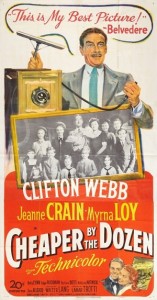
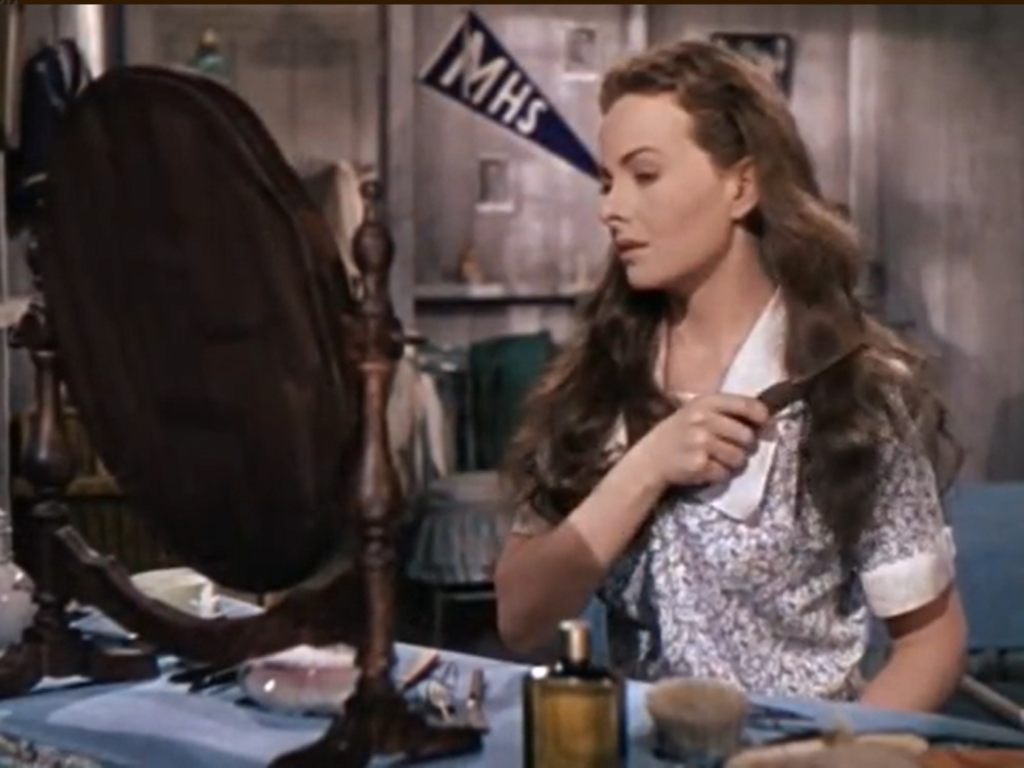
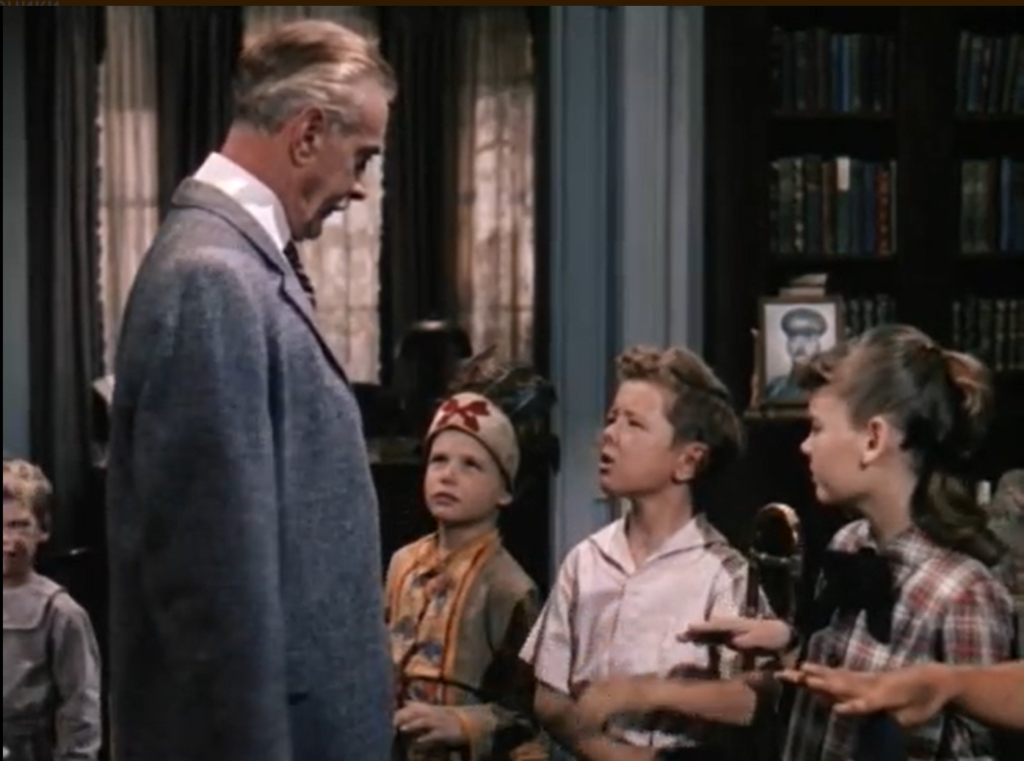
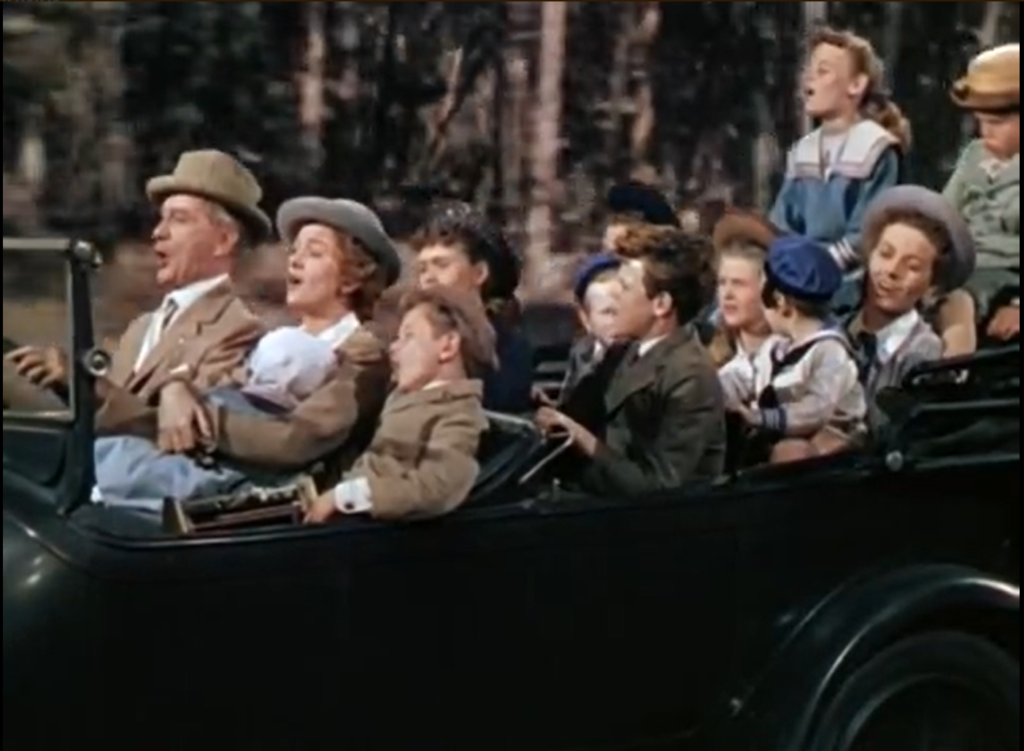
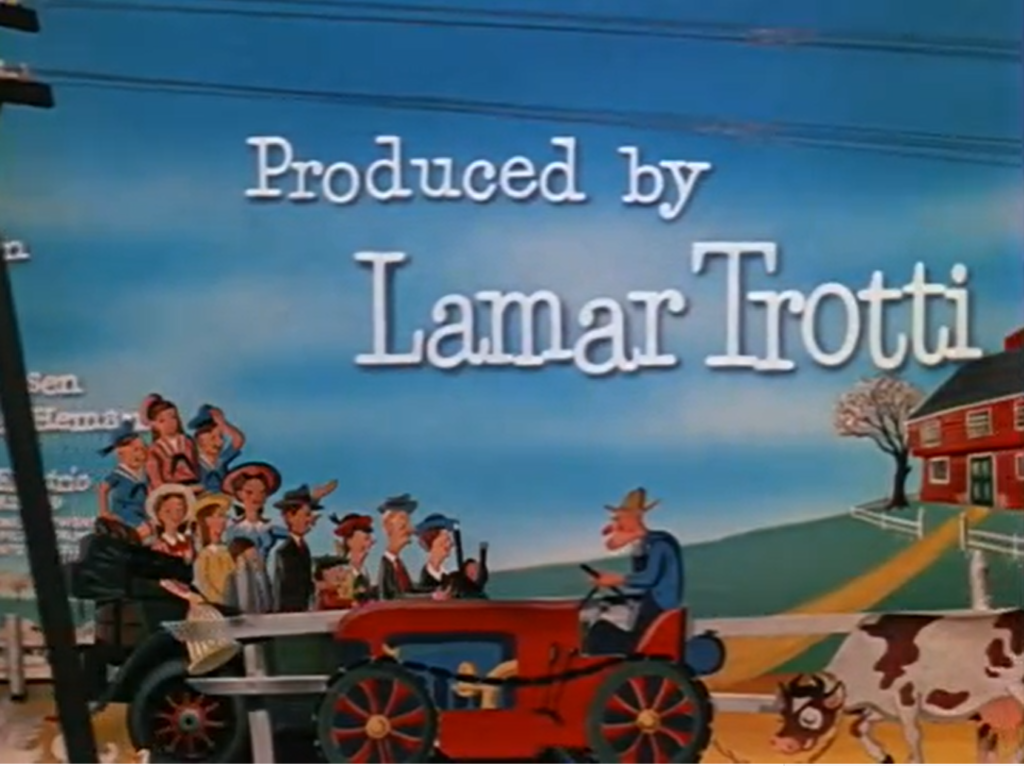
One thought on “Cheaper By the Dozen (1950)”
Not must-see.
I saw this once before, as a young, budding film fanatic – but I’ve no memory of how I felt about it at the time. Seeing it again now… well, yes, it’s certainly “sincere but lackluster”. I’ve seen a fair amount of films directed by Walter Lang and his work seems to be famous for being sincere but lackluster.
This seems the kind of film that may well have been quite popular as something of a novelty item in 1950. But it hasn’t traveled well over time. Now it seems too quaint for its own good. It was designed to not offend a single audience member in any way. The minor family ‘squabbles’ aside, it’s a picture-postcard advertisement for ‘the perfect family’. If the real-life parents really did manage to keep their household that drama-free, they’re to be congratulated – but, as a film, it’s very slight indeed.
To me, the most interesting point in the film comes at the tail end when (as related by Wikipedia) “[t]he voice-over… informs the audience that Lillian [the widowed mother] went on to become the world’s leading efficiency expert and the TIME magazine Woman of the Year in 1948.”